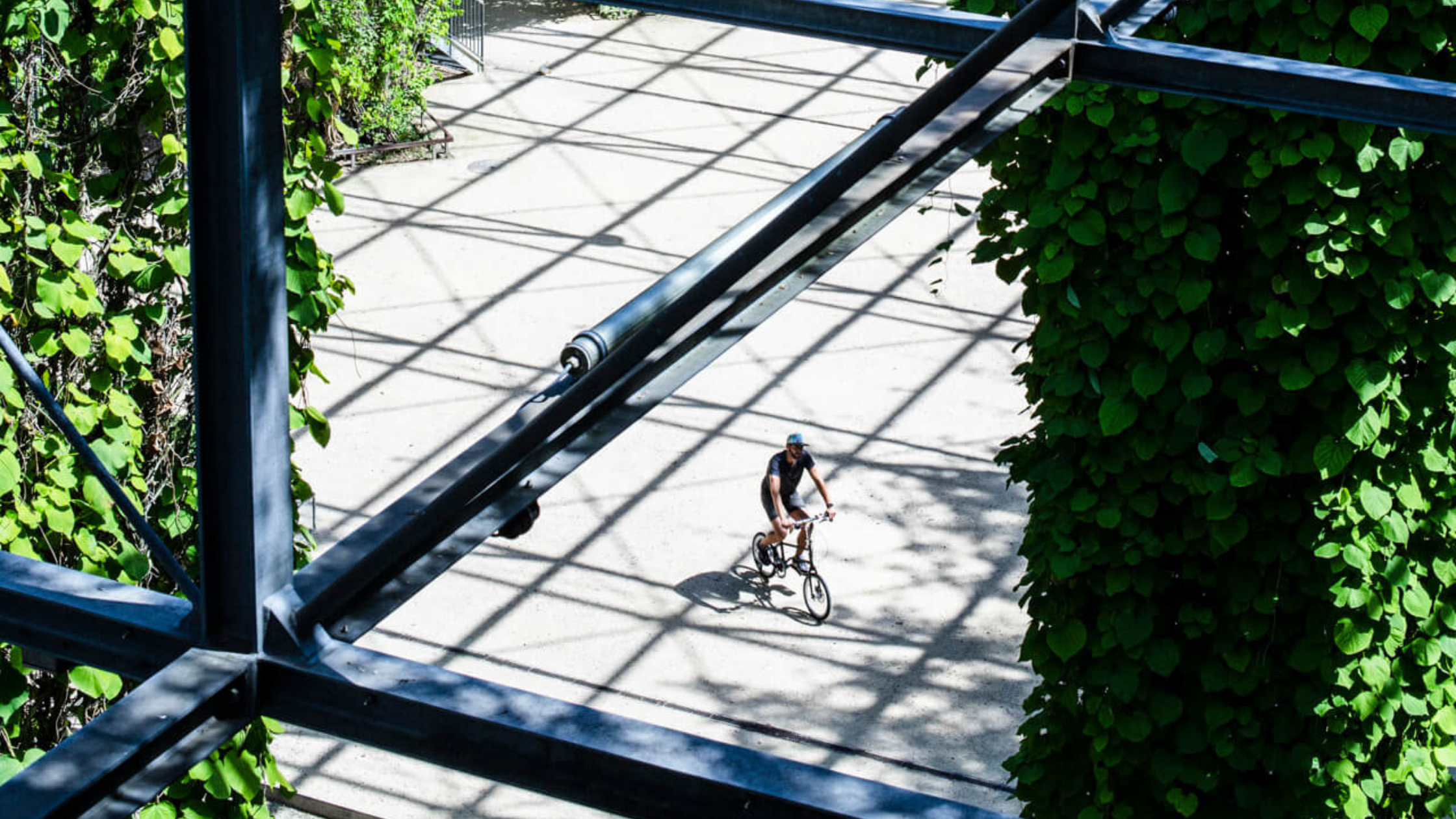Parking lots, streets, breakdown lanes, short-term parking zones...cars are ubiquitous in cities.
Yet there is a lack of living space on every corner. What cities really need are new structures. Trees, plants, places to sit and linger, sidewalks, and even bike lanes.
The latter offer a multimodal solution to the traffic problem in cities: bicycles are space-saving, fast, clean and practical.
SUSTAINABLE THINKING
Folding bikes and innovative e-bikes in particular promise to change the cityscape in the future. The Green City is still a pipe dream, but it has already found its way into urban planning concepts to make cities fit for the future. Subsidies, such as the folding bike subsidy in Vienna, show that the interest in new mobility is there: more and more people want to get away from the car, especially now that fuel prices keep rising and parking spaces are scarce.
Environmental awareness also plays a role. Many people no longer feel comfortable in cities. Too noisy, too much pollution, not enough green. People are rethinking. If you ask students how they would design the city of the future, the highlight is not flying cars, but green houses, indoor gardens and sustainable mobility solutions.
THE NEW MOBILITY
VELLO bike recognized the potential of two-wheelers years ago and has been producing folding bikes since 2015. We believe that e-mobility is part of building more sustainable cities: some time ago, e-folding bikes were added to the range, making everyday life easier for customers. Many ride their folding bikes to the office, or use them on weekends to escape the hustle and bustle of the city center.
In a world where 68% of the world's population is expected to live in cities by 2050, new concepts are needed. In urban areas, long distances in general could soon be a thing of the past, at least that's the concept of the 15-minute city, which could prove to be a paradise for cyclists. In a 15-minute city, everything you need for daily life is within a quarter of an hour's reach. By bike it is even faster. Shopping facilities, educational institutions, health centers, leisure activities: in the city of the future everything is close at hand and accessible without a car or public transportation. It is a step towards decentralization and a human infrastructure.
So-called superblocks, which are currently being used in Barcelona, could also help on the way to sustainable urban planning. Pedestrians and cyclists have priority in these blocks consisting of up to nine buildings. Cars are diverted onto main roads. This creates space for greenery such as trees, flower beds and flower tubs. This not only reduces carbon monoxide emissions by over 10 percent, but also creates space. Space that can be used by local residents.
The advantage of folding bicycles should be part of any new urban concept: they are fast, manoeuvrable and require hardly any storage space. A folding bike is easy to store in the office or at home and can also be taken on public transportation without extra charges. Folding bikes offer freedom without the restrictions of cars.
Valentin Vodev, founder of VELLO bike, is on a mission to innovate the way we experience mobility in cities. On October 11, he will speak on the topic "Cars are not foldable" in Luxembourg.
More information about the event: here and here
Event website: http://www.designfriends.lu/events



